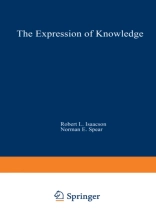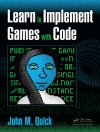What we know about the world and its opportunities limits what we do. If we do not know that there is a pot of gold at the end of the rainbow, we will not follow it. If we do not know that a desert cactus contains water, we will not cut into it for sustenance. Often, however, we do know things about the world and yet the knowledge does not seem to be reflected in behavior. Explaining this fact simply in terms of inadequate motivation for expression or incomplete memory for the important in- formation does not really add much to our understanding. The ex- pression of knowledge can be interrupted in very special ways by a variety of more specific conditions-fatigue, sources of forgetting that may include failure of memory retrieval, emotion, and various dysfunc- tions of brain and body systems-that are not satisfactorily incorporated by any current theories of motivation or memory. Also, a dissociation between knowledge and its expression can take the form of applying knowledge without apparent awareness of this action, a phenomenon that requires complicated assumptions for explanation in terms of either motivation or memory. Dissociations between knowledge and action may be striking. After driving home on a familiar route we may not be able to report whether the last three traffic lights were red or green; yet we must have re- sponded appropriately to them.
Robert L. Isaacson & Norman E. Spear
Expression of Knowledge [PDF ebook]
Neurobehavioral Transformations of Information into Action
Expression of Knowledge [PDF ebook]
Neurobehavioral Transformations of Information into Action
购买此电子书可免费获赠一本!
语言 英语 ● 格式 PDF ● ISBN 9781468478907 ● 出版者 Springer US ● 发布时间 2012 ● 下载 3 时 ● 货币 EUR ● ID 4616391 ● 复制保护 Adobe DRM
需要具备DRM功能的电子书阅读器












